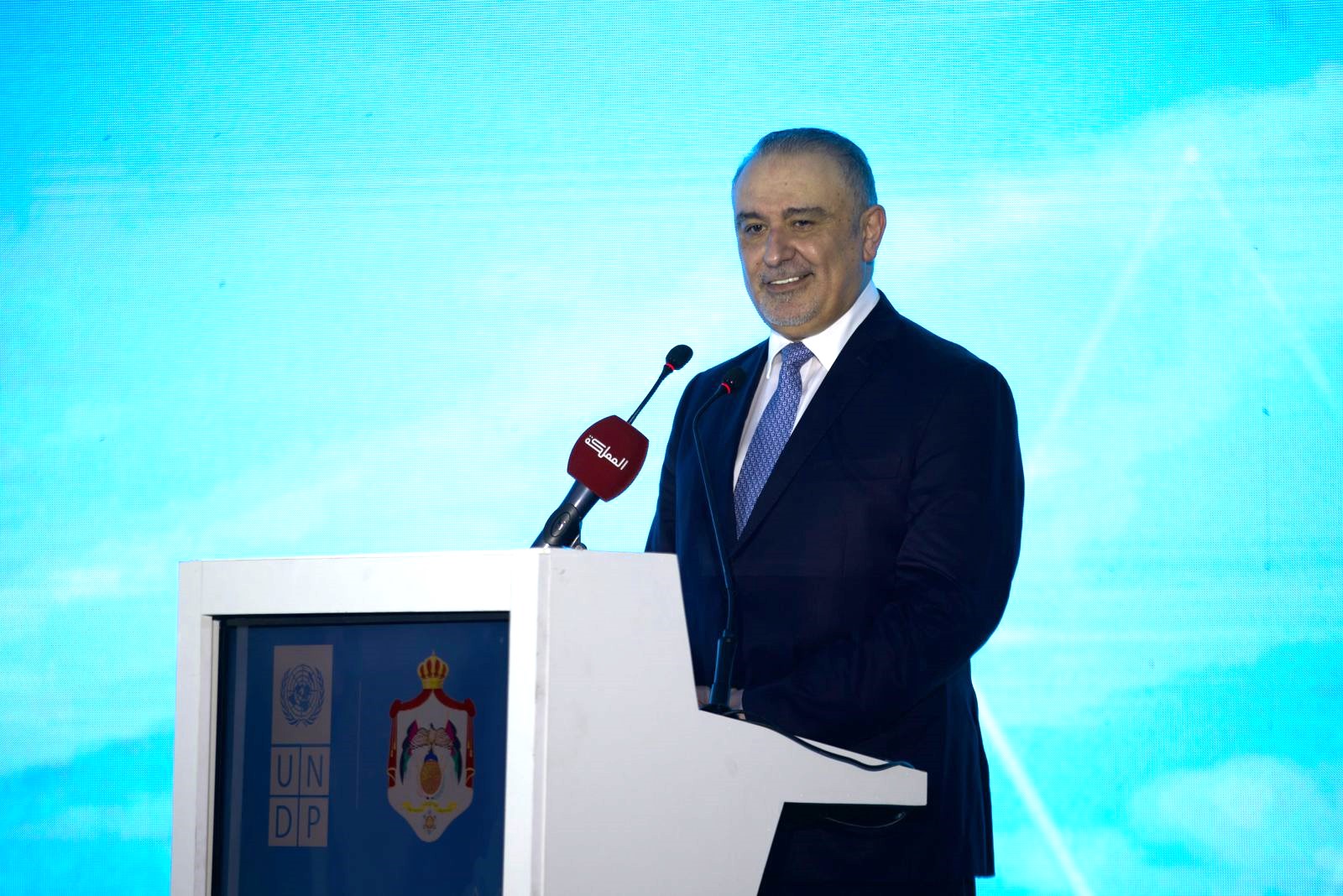
Amman - May 23, 2024 - As part of the government's efforts to achieve integration between national, sectoral and institutional strategies and plans, Deputy Prime Minister for Economic Affairs and Minister of State for Public Sector Modernization Nasser Shraideh sponsored the launch of the "Institutional Capacity Development Program in Comprehensive Strategic Planning" organized by the Ministry of Planning and International Cooperation in cooperation with the Public Sector Modernization Program Management and Implementation Unit at the Prime Ministry and in partnership with the United Nations Development Program in Jordan.
The program aims to enhance the efficiency of the public sector in the field of strategic planning, including mechanisms for monitoring, evaluation and measuring results in a way that serves the achievement of the Economic Modernization Vision (2033) and the Public Sector Modernization Roadmap (2023-2033), as the program focuses on building national capacities to ensure effective and results-based implementation, leading to a public sector capable of achieving national visions and priorities.
The training program, which includes a group of international experts and experts from the United Nations Development Program, is attended by more than 170 male and female employees from 79 government agencies, including leaders and workers in the fields of strategic planning and performance monitoring units, with the aim of supporting coordination and communication between them in order to enhance their capabilities in the field of strategic planning, implementation, future foresight, scenario preparation and results-based management, in addition to achieving alignment between the institutional strategies of the participating agencies with the initiatives of the executive program for the Economic Modernization Vision on the other hand.
Deputy Prime Minister for Economic Affairs and Minister of State for Public Sector Modernization Nasser Al-Shraideh pointed out that this program was among the priorities of the executive program of the Public Sector Modernization Map 2024, which aims to adopt comprehensive, proactive, and cross-government plans, noting that its importance lies in translating national plans into coordinated and interconnected executive plans at the institutional, sectoral, and national levels.
He added that the programme aims to fully align sectoral strategies and plans with the executive programme of the Economic Modernisation Vision (2033) and the Public Sector Modernisation Roadmap (2023-2033), in addition to raising the capabilities of institutions in strategic planning and enhancing coordination between government agencies in the same sector and government agencies as a whole.
And assessing the impact in a way that reflects on decision-making mechanisms and drawing up evidence-based policies, thus achieving common sectoral and national goals.
The Secretary-General of the Ministry of Planning and International Cooperation, Marwan Al-Rifai, also pointed out that the program was designed based on the executive programs of the national visions to identify the entities, ministries and institutions targeted in the training process, represented by the strategic planning units and performance monitoring units. He also pointed out that a clear mechanism will be put in place to ensure the continuity of its implementation with partners and entities concerned with raising the capabilities of public sector employees, and benefiting from the available tools to spread the benefit to all institutions, according to the best international practices.
In turn, the Resident Representative of the United Nations Development Programme in Jordan, Randa Abu Al-Hassan, praised the steady progress Jordan is making in the areas of political, economic and administrative reform.
The Resident Representative expressed the pivotal role of the Institutional Capacity Development Program in comprehensive strategic planning in enhancing strategic partnership with various public sector institutions in order to institutionalize strategic planning processes, by providing a framework for comprehensive national strategic planning in partnership with the government in order to achieve the goals of the Economic Modernization Vision.
She added that the United Nations Development Programme continues to support the Jordanian government's efforts towards an effective public sector that meets the needs and goals of the next phase by supporting training and continuous learning in line with the best practices of strategic planning and results-driven management, which enhances the role of data and artificial intelligence systems in this context.
It is noteworthy that the program launch ceremony was attended by a group of Secretaries-General of the participating ministries and public institutions, and the entities concerned with implementing the initiatives of the Executive Program for the Economic Modernization Vision. The launch ceremony also included a comprehensive presentation on the program’s main themes and objectives.